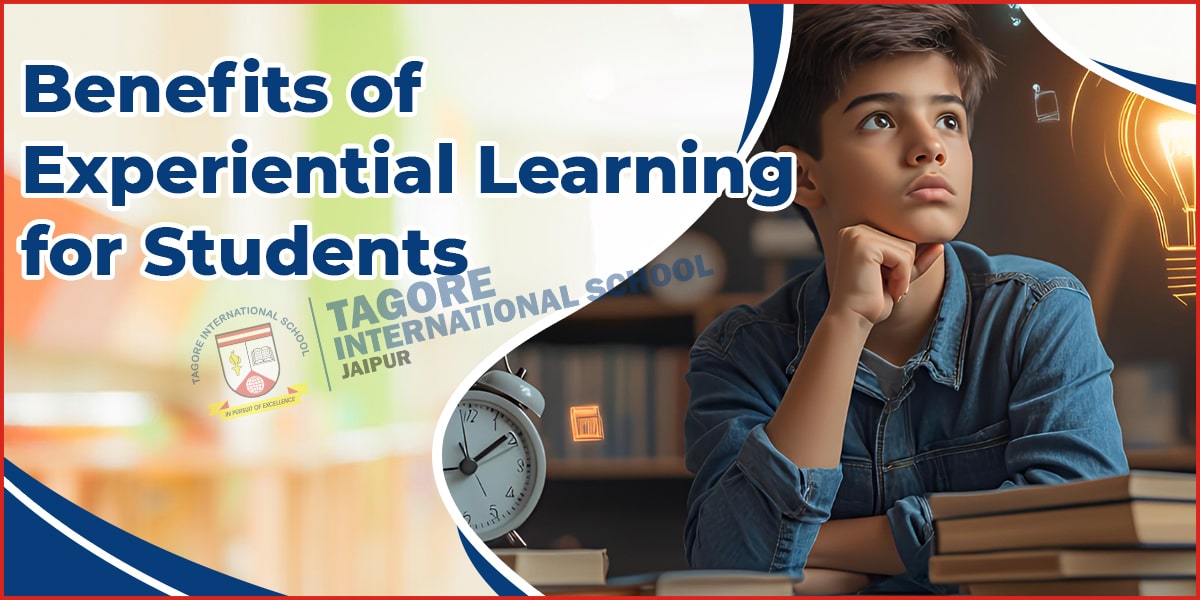Today, children are born at a time when the use of technology is essential as it plays a crucial role in education, makes learning easy, and helps students and teachers. It guides teachers and tells them how they can make learning interactive so that students can perform well in the examination. The latest advancements in technology are reshaping the career of education, and Tagore International School better understands the need for technology, so it provides various technological advancements like smart classes so that students' learning can become more interactive and enjoyable. TIS Jaipur is an example to illustrate how the integration of technology in CBSE education can provide a dynamic, diverse, and future-focused learning space.
Benefits of Technology Integration in Education
Personalized Learning
It is the main benefit of integrating technology as it understands the unique needs of students and makes learning an easy task. With the help of adaptive learning, many students receive content that is easy to understand, and it also analyses the students' progress. This not only understands the unique needs of the students but also provides instant support so that they can grab things quickly.
Multisensory Engagement
Traditional textbooks are not very interactive and often fall short in captivating young minds. Through the implementation of 3D models and multimedia resources that engage students and make learning interactive and interesting.
Globalised Perspectives
It breaks the walls of the classroom and connects students through virtual classes on various platforms like Zoom and Google Meet and develops a deep understanding of diverse cultures and viewpoints. This was more helpful when India faced the COVID-19 pandemic.
You can read also:- Explore Jaipur's Best Private School
Enhanced Teacher Productivity and Efficiency
Teachers can leverage technology to enhance their productivity as they use various digital tools that can expand learning opportunities and increase support and engagement of students. It is also helpful in developing new methods of teaching and personalizing learning. One of the main benefits for schools is that it can reduce the costs of physical instruction programs.
Future of Learning: Technology in CBSE Education
Digital Classrooms
Digital tools have become an integral part of education, especially after the COVID-19 pandemic. CBSE schools like TIS utilize the smart boards, projectors, and digital content to enhance the engagement of students. This can help in making learning more interactive and engaging so that students can learn complex topics effectively and efficiently.
Focus on Skill-Based Learning
CBSE schools are shifting from traditional learning methods to skill-based learning that focuses on real-world applications. The curriculum is focused on vocational subjects and life skills so that it can give practical skills to students that go beyond the textbooks. This allows critical thinking, problem-solving, and creativity that encourages students to think independently and apply knowledge to their real-life situations.
AI and Machine Learning
CBSE schools are experiencing a shift toward AI-assessment and evaluation methods. AI is used in grading systems, ensuring fairness, consistency, and faster feedback that is helpful for students as this will enhance their efficiency. Moreover, AI enables personalized learning by identifying the strengths and weaknesses of the students and offering support whenever needed.
You can read also:- Why making mistakes make you learn better
Technology in CBSE Education: Innovative Strategies for Teachers
Flip the Script (The Flipped Classroom Training)-
The flipped classroom disrupts the traditional method of teaching. Students can learn more effectively through pre-recorded lectures, online resources, or assigned readings at home. This is beneficial as it frees the classroom for interactive activities like group discussions and project-based learning. This allows the teacher to focus on individual students and support them.
Project-Based Learning Teacher Training
Project-based Based Learning transforms the classroom into the hub of inquiry. Students can ask about their doubts freely in this session. This can make learning more interactive and engaging and focuses on developing certain skills like creativity, critical thinking, problem-solving, and teamwork.
Collaborative Learning Spaces Beyond the Four Walls with Teacher Training
The classroom will not have a static environment. Consider rearranging the furniture to create flexible learning spaces that will promote group work and collaborations. This will create a dynamic learning environment as it allows students to move around. You can use the outdoor space for project work discussions.
Conclusion
The role of technology has transformed the way students learn and teachers teach. The implementation of technology in CBSE education makes studying more accessible, engaging, and interactive. Every student can learn easily with virtual classes and also understand complex topics effectively and perform well. It can analyse the strengths and weaknesses of the students and guide them accordingly.
Digital Classrooms are reducing the need for traditional methods of teaching and encourage students to learn something new every day. Through group discussions, they will develop certain skills like creative thinking and problem-solving that will help them to solve real-life problems. In this way, technology plays a vital role in education.




